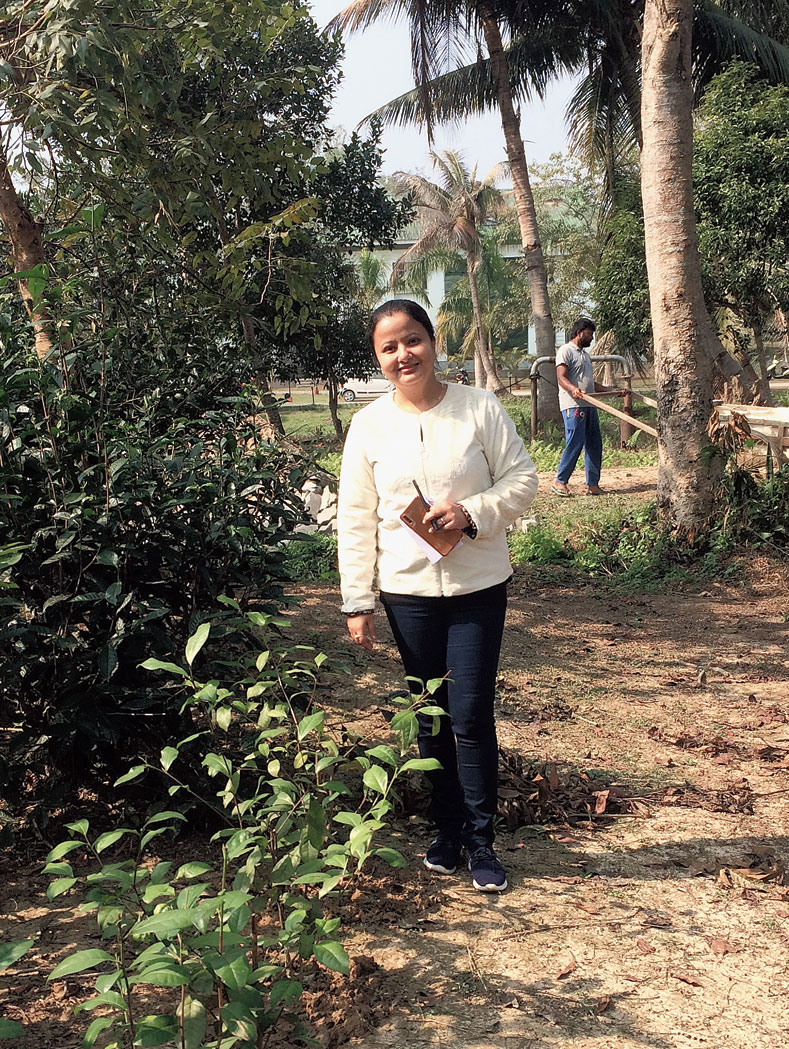A scientist at the Tocklai Tea Research Institute (TTRI) here has achieved a major breakthrough in micropropagation of the tea plant by applying the tissue culture technology.
Micropropagation is the reproduction of plants by growing plantlets in tissue culture and then planting them out.
“This is a major achievement for the tea industry. The new technology can be used for commercial micropropagation of tea plantlets at a reasonable price and is much faster than the conventional methods. It throws up a possibility of a complete transformation of the entire supply chain management of tea planting materials in the near future,” TTRI director A.K. Barooah told The Telegraph on Friday.
The director said Tocklai has been carrying out research in this field since the early 1990s but achievement has come only recently. “We give full credit to Pranita Hazarika and her team for this,” he said.
The director said the breakthrough would be a great help for the tea industry, especially at a time when it is facing sustainability challenges like increasing cost of production, decline of yield and quality, rising cost and climate change.
Tocklai, a purely industry research body, has done path-breaking work in the last hundred years by bringing out superior planting materials in terms of vegetative clones, agronomic practices for the industry and tea technology which have helped take the tea industry forward in the global scenario. The institute in collaboration with AgNext Technologies, had last year come out with a fine leaf count machine, called TRAgnext QualiTeaProfiler, based on artificial intelligence which is seen as a big game changer.
The TRAgnext QTP is on pilot trials at Tocklai currently. This will be a big step towards standardisation of green leaf and improving the overall quality of tea in India.
Pranita said the tissue culture technology would make planting materials available at a much faster rate, irrespective of the time and season, and at a very low cost compared to the methods available at present. “I feel it would be a revolution in the tea nursery management. Tissue culture has the potential to generate a large number of plantlets within a short time from a single cell or tissue or explants (plant parts). The technology is at present applied in case of micropropagation of orchid and banana, among others,” she said.
Hitherto, the technology could not be utilised for mass propagation of tea plants because of difficulty in rooting and hardening of in-vitro cultured tea plants. “Most of the tea tissue culture work was successful in laboratory only and that too using the germinating seeds as the starting material. It was also a big challenge to regenerate tea plantlet in in-vitro condition from field-collected tea shoots due to severe contaminations,” Pranita said.
The new tea plants prepared by this new technology inside TTRI campus recently completed a year. They have shown healthy growth and received the first prune only a few days back.
The TTRI director said making available climate-resilient and superior cultivars as well as innovative technology for adoption by the gardens are crucial components for ensuring sustainability of the industry.
“The conventional tea plant multiplication methods, either through germinating seed or vegetative nodal cuttings, are unable to meet the mounting demand from tea gardens for good planting materials,” he said.











